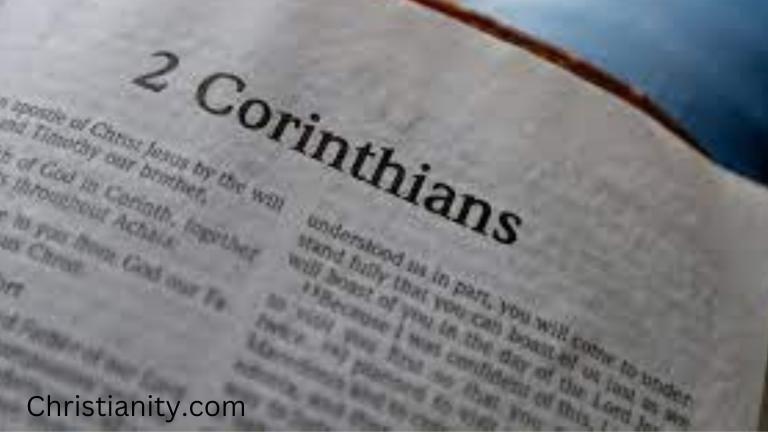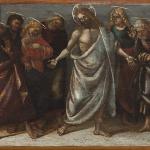 Monday: Read 2 Cor 10:1-18
Monday: Read 2 Cor 10:1-18
As we noted before, 2nd Corinthians is Paul’s most autobiographical work. A large part of this is the result of Paul’s continued need to defend himself in order that they might accept him as an apostle.
In chapters 10-13, Paul addresses groups with whom he disagrees in order that these matters may be settled before he arrives. In 1-11, he refers to some of the insiders who regard Paul as “walking according to the flesh” (2).
Then, in 12-18, Paul refers to those who commend themselves by comparing themselves to Paul.
Over the next four chapters (10-13) we will see Paul’s response to accusations against him that, in the Corinthians’ mind, shows Paul’s weaknesses.
Paul’s responses include: his “weakness” is an imitation of Christ; his weakness was for their sakes; and his weaknesses demonstrate the Gospel and what real power looks like.
The first sign of Paul’s weakness is that he has an attitude of humility (1). It is important to know that humility was not a virtue in the Greco-Roman world.
Paul responds by saying that our pride should be in Christ (10:17; 1 Cor 1:3). He adds that our boasting should be in Christ (1 Cor 3:5-9). This doesn’t mean that Paul won’t exercise his apostolic authority if needed. This is, after all, what he does here (2-11). For Paul, we don’t “wage war according to the flesh” (3). That is, we are not concerned with honor and power as the world does honor and power.
Questions to ponder/discuss:
- It is important to recognize that our understanding of “boasting” is a bit distorted. It is almost as if we believe that we should never boast. But how do we expect someone to hire us if we never tell them our credentials? If a person is preaching or teaching and the audience doesn’t know them, it is customary to be introduced and to give the speaker’s credentials. It is not wrong to tell people why they should listen to you. This is what Paul was doing. (today, of course, what Paul does sounds like bragging. It wasn’t. it was necessary information). Perhaps, the question we should ask is: “why are we boasting?” What do you think are some valid reasons to boast?
Tuesday: Read 2 Cor 11:1-21a
In 11:1-12:13, Paul defends his ministry against the charges of some who are claiming to be “super” apostles (this could be Paul’s sarcastic title for them—although even then it might be based on something they said). This brings us to the second sign of Paul’s weakness: he refused to receive pay and was instead performing manual labor (7-12; see 1 Thess 2:5-9; 1 Cor 9:15-18).
This was a serious problem for Paul. In the GR world, A teacher who didn’t charge would appear as though he was not worth listening to. And the idea of manual labor was degrading—something for the lower classes and slaves. The belief was that a true philosopher would charge for his work—showing that he is worth the money—and would not stoop to self-support.
Paul viewed his actions as embodying the story of Jesus and self-giving love (11). Paul adds that he was renouncing his rights to be paid so that he would not be a burden (7-11; see also 1 Thess 2:9; 1 Cor 9:12, 15, 18-19; 2 Cor 12:13).
Paul’s opponents (the “super-apostles”) claimed equality because they charged money. Paul says that the Corinthians have been enslaved by them (this is the result of the system of patronage and power; 20-21). Paul, by way of contrast, was committed to living out power in weakness.
Questions to ponder/discuss:
- A study of 1-2 Corinthians should force us to begin to ask how and why we do church the way we do today. We need to ask: how much of what we do manifests weakness and exalts the gospel? There is a delicate balance here for sure. But I fear that much of what we do crosses the line towards pride, power, and self-centeredness. And I fear that little of what we do crosses the line towards humility and the exaltation of Christ.
- What are your thoughts here? Maybe you haven’t considered this much. I hope this study of 1-2 Corinthians is helping you learn to ask some different questions.
Wednesday: Read 2 Cor 11:21b-33
Today’s reading is the first part of what is known as Paul’s “fool speech” (21). It is a rich chronicle of his sufferings. This passage is Paul’s “fool speech” because he is boasting—which he believes he must do because they continue to not listen to him. For Paul, his boasts “pertain to my weakness” (30).
Paul defends his claim that he is an apostle by noting all of his sufferings! In Paul’s understanding of the Gospel, an approved worker is one who has suffered for Christ. After all, we preach Christ crucified!
In this list of sufferings are some matters for which we have no other source. He was beaten by the Jewish authorities 5 times (39 lashes). He was beaten by Roman officials (‘rods”) 3 times (these beatings were with the lictor’s [policeman] rods.
Questions to ponder/discuss:
- Reading a list of sufferings like this leads us to ask, how is it that Paul endured? What do you think?
- We might be intimidated by a list like this and think that we would never be able to endure such hardships. Although I completely understand this sentiment, I also recognize that it is not a good one. If you feel this way or are concerned, ask the Lord for faith, and the power of the Spirit to endure.
Thursday: Read 2 Cor 12:1-21
Paul continues his “fool speech.” One of the charges against him was that he was not a genuine apostle. Paul concludes by saying that he should have been commended by them but was instead forced to speak as a fool (11).
We noted that in the opening verse of both 1st and 2nd Corinthians Paul begins with a very forceful assertion that he was indeed an apostle and that it was “by the will of God” (1 Cor 1:1; 2 Cor 1:1).
Paul finishes off the defense of his apostolic credentials by claiming that he has seen the resurrected Jesus (1-9). This appears to have been a central criterion for being an apostle: namely, that Christ called and appointed you.
NB: this is why many, including myself, would claim that there cannot be apostles today. An apostle is someone who was appointed by Christ to lead the church. The apostles certainly appointed others to continue to lead the church after them. Those that they appointed, however, are not apostles because they were not appointed by Jesus Himself.
Paul adds that because of the incredible things he saw (the “surpassing greatness of the revelations”; 7), he was given a “thorn in his flesh”; which he says was “a messenger of Satan” (12:1, 6-10; esp. 7).
This serves as the fourth accusation against him and his claims to be an apostle: Pain has some type of physical “weakness.” We don’t know what the “thorn in his flesh” was, but the notion that it was a physical ailment gains a lot of traction here. After all, it provided another reason why some refused to follow him and accept his claims to be an apostle.
Questions to ponder/discuss:
- I suppose that today’s lesson might be titled, “be careful what you ask for.” What I mean is that we often ask for miracles, for God to reveal Himself, or for some sort of inside information that will make sense of things for us. Paul, however, notes that because of the greatness of the revelation he was given, he was also given a messenger of Satan (which we do not know what it was; although it apparently caused some sort of suffering) to keep him from becoming conceited.
- I suspect that this might be the answer to yesterday’s question. God’s grace is what sustained Paul. He was able to endure all that he did because he had seen God’s throne room. He knew what was in store for him. He has seen glory and it is worth his present suffering.
- It is important here to note the possibility that Paul had some form of a physical ailment. We are often really good at saying that all persons are made in the image of God—although we have a much harder time putting that into practice than I think we are willing to admit. One of the people groups that have a hard time in society and, tragically, in the church also, are those who are physically or mentally challenged. They too should be welcomed into the community of God’s people with a status that is equal to all others. Consider ways in which you might unwittingly discriminate against people with physical or mental challenges.
Friday: Read 2 Cor 13:1-14
Paul’s closing remarks are certainly forceful as he continues to defend himself and his Gospel.
When Paul does finally arrive in Corinth, he will initiate a judicial action against those who remain unrepentant and continue to rebel against his leadership (1). Paul has already warned them. In fact, he has delayed coming in order that they might have time to repent (1:23-2:2).
It may be that the claim that “Christ was crucified in weakness” (4) is a quote from Paul’s opponents. Paul’s response is to affirm that the Christ that he preaches is powerful because He has risen (4). And it is because Jesus has risen that Christ judges them (4: contra the NIV) and for this reason, they should examine themselves (5). How do they do this? By recognizing that Paul has already passed the test (6).
Paul hopes that they will understand his message and that there will be no need to be forceful when he comes (10).
The letter ends with a formal closing and a greeting (13). Paul includes a trinitarian statement: Jesus Christ, the love of God, and the fellowship of the Holy Spirit (14).
Questions to ponder/discuss:
- One may read this chapter and conclude that Paul is arrogant and forceful, or even that it is cult-like—a sort of listen to me or you are out of here! But this would be a serious misreading of Paul. Paul affirms, “we rejoice when we ourselves are weak but you are strong” (9).
- I suspect that it is difficult for us to understand Paul’s harsh tone in large part because we are unaware of just how bad things were in Corinth and how much trouble they had given Paul. I suspect even more so that we have no real idea how much suffering Paul went through for the sake of the church in the first century.
- What are your biggest takeaways from this letter?
- How can you better apply the principle of unity in the church in your content?
[1] This guide is meant to be done either as a group study over the course of 2 or 4 meetings (Day 1-5; 6-10; 11-15; 16-20), or as a private devotion over the course of 4 weeks (or a calendar month—5 lessons per week).















